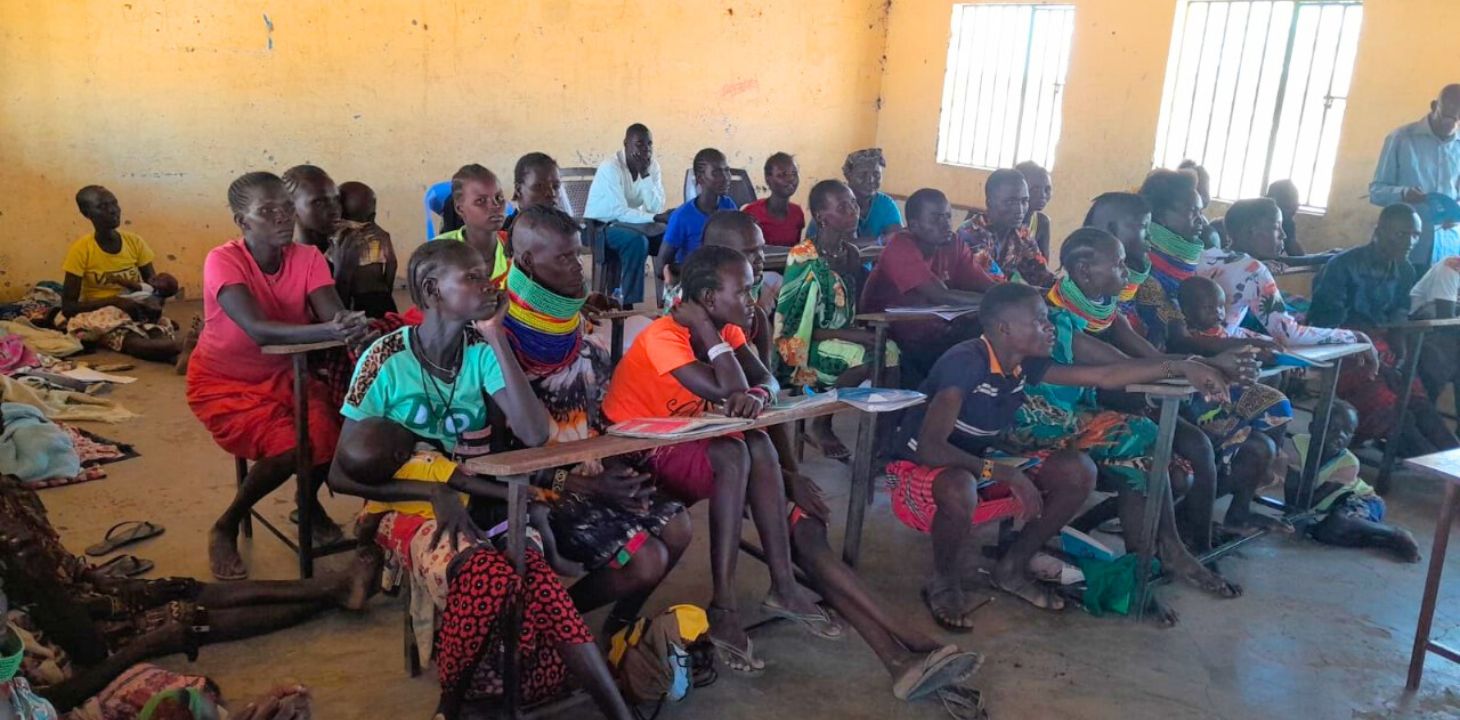Literacy Strengthens Communities in Kenya

In Turkana, hope and agency are growing
While life in Kenya’s capital Nairobi moves between rising skyscrapers, in Turkana County in the northwestern part of the country, people travel along nomadic routes. Livestock herding and seasonal farming are typical livelihoods in this extremely dry and harsh region. In 2018, the Bible Societies launched a literacy project in Turkana, and last year Global SIL conducted an evaluation of the project and its impact on the community.
Literacy Builds the Common Good
Piplia’s literacy classes are held in the local language and taught by trained teachers who speak that language as their mother tongue. In Turkana, over 3,300 students have taken part in Piplia’s literacy classes, and about 64% have completed the course.
The six-month course teaches basic reading skills. Recognizing and understanding numbers is also part of the curriculum. Numeracy directly affects everyday life and independence in a world where economy, democracy, and time are all navigated through numbers.
The newly acquired literacy was visible in community life. Students in the literacy classes participated more actively in community meetings, served as secretaries, and took on other responsibilities. They reported that they better understood local decision-making processes.
I used to be afraid to speak in community meetings. Now I’m braver and use my voice. Since I can write and read names, I acted as a secretary in a village meeting.
I started a vegetable business. I can calculate expenses and income – that’s vital for survival.
(Anonymous comments from the Global SIL evaluation of the literacy project, Kenya 2024)
Literacy Empowers Both Individuals and Communities
The success of the literacy project is based on strong collaboration with local churches, communities, and leaders. Village elders visited the classes and encouraged participation. Churches provided spaces or staff for the classes. This communal approach is key to ensuring that learners are not left alone in the process, but are supported by the wider community.
Literacy enables people to live independently and act with agency. For many, it marks a turning point in life. It has increased students’ self-esteem and desire to take part in community leadership. Being able to write their own names and read their own text messages has brought new freedom. Literacy has also opened up opportunities for self-reliance and family support.
I used to get lost because I couldn’t read road signs. Now I can find my way to new places.
I used to walk along the river searching for wild nuts to feed my family. After attending the literacy class, I’ve learned to farm and grow food to nourish my family.
Now I can read my text messages myself. I no longer have to walk across the village to ask a neighbor to read them for me – sometimes the messages contain private matters I don’t want others to know.
(Anonymous comments from the Global SIL evaluation of the literacy project, Kenya 2024)
Challenges and Hope
The literacy project also faces challenges. Long distances, financial barriers, and weather-related disruptions hinder learning. A lack of funding has already led to the closure of some classes. To ensure the continuity of the project, more materials, further learning opportunities, and the use of digital tools are needed.
Still, the project has shown that even small investments can have a big impact. It has sown a seed of hope in the Turkana community – and its fruit is growing into communities capable of responding independently to the challenges of the future.
Literacy for Women in Africa
- The Literacy for Women in Africa program was launched in 2017 at the initiative of the Finnish Bible Society.
- Through the program, 20,000 women will learn to read.
- Literacy classes are held in Namibia, Tanzania, Kenya, Malawi, Angola, and Ethiopia. The work is carried out in six minority languages. Learning in one’s mother tongue improves learning outcomes and encourages both village communities and students to commit to education.
- The program is part of the global literacy work of the United Bible Societies. Funding from Finland comes from the Ministry for Foreign Affairs’ development cooperation funds, support from parishes, and private donations.
By making an Agricola donation, you bring about a major change in the life of a woman, a family, and an entire village.